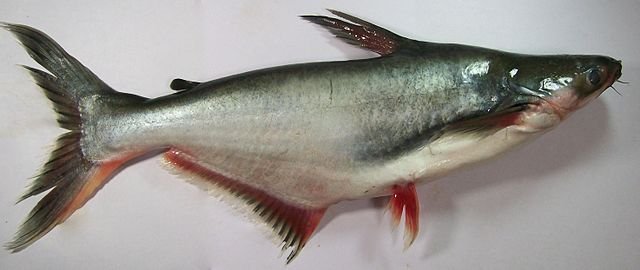
Pollution driven by ammonia and arsenic, along with the impacts of climate change, have become critical factors disrupting aquaculture systems. These issues not only threaten aquatic ecosystems but also have far-reaching consequences for human health.
In response to these challenges, researchers from the ICAR-National Institute of Abiotic Stress Management conducted an innovative experiment to investigate the potential of manganese nanoparticles (Mn-NPs) in mitigating the adverse effects of pollution and high-temperature stress in Pangasianodon hypophthalmus, a species of catfish.
Mn-NPs: A powerful ally against stress
To address the multifaceted challenges of aquaculture, the study exposed Pangasianodon hypophthalmus to various combinations of arsenic and ammonia pollution, as well as high-temperature stress. Simultaneously, the fish were fed diets enriched with manganese nanoparticles, Mn-NPs.
Manganese nanoparticles represent a micronutrient of profound significance in metabolic and biochemical processes. This micronutrient plays a multifaceted role, extending its influence to encompass protection against reactive oxygen species (ROS), immunomodulation, growth performance, blood coagulation, bone growth, and nervous system functioning.
The study is the first of its kind to elucidate the role of Mn-NPs in alleviating stress through the regulation of various genes involved in the stress response.
The inclusion of Mn-NPs at a concentration of 3 mg kg-1 in the diet led to a notable downregulation of cortisol and HSP 70 gene expression, suggesting that these nanoparticles have the potential to mitigate stress responses in fish.
“This research has also revealed that the inclusion of 3 mg kg-1 Mn-NP serves as protection against DNA damage and improves the expression of DNA damage-inducible protein in fish subjected to various stressors,” the researchers reported.
Enhancing immunity and reducing harmful gene expression
The study also found that expressions of genes related to the immune system were significantly affected by stressors but improved with a Mn-NP diet. Additionally, the expression of genes associated with stress responses, such as inducible nitric oxide synthase (iNOS), caspase (CAS), metallothionein (MT), and cytochrome P450 (CYP450), was upregulated in response to stress. However, the inclusion of Mn-NPs at 3 mg kg-1 in the diet significantly downregulated the expression of these genes, thus reducing stress in fish.
Improving growth and protecting DNA
In addition to stress-related genes, the study examined gene expressions related to growth. Genes associated with growth hormone (GH), growth hormone regulators (GHR1 and GHRβ), and insulin-like growth factors (IGF1 and IGF2) were significantly upregulated in fish fed diets enriched with Mn-NPs. Conversely, genes related to growth inhibition, such as myostatin and somatostatin, were downregulated.
Mn-NPs also demonstrated a remarkable capacity to protect fish from DNA damage, as seen in the gene expression of DNA damage-inducible proteins and the measurement of DNA damage in fish tissues.
Reducing arsenic bioaccumulation
One of the most promising findings was that Mn-NPs enhanced the detoxification of arsenic in various fish tissues, resulting in reduced bioaccumulation of arsenic in muscle and other body parts.
This could mark a turning point in reducing the risks associated with arsenic bioaccumulation in aquatic organisms and, subsequently, in the food chain.
Conclusion
Manganese nanoparticles (Mn-NPs) emerge as a powerful tool to mitigate pollution and stress, enhance growth, protect DNA, and reduce bioaccumulation risks in fish.
“The study reveals that genetic regulation related to growth performance is also influenced and improved by Mn-NPs, ultimately contributing to improved growth rates in fish exposed to stressful conditions. Surprisingly, the administration of Mn-NPs at 3 mg kg-1 effectively promotes the detoxification of arsenic in various fish tissues,” concluded the researchers.
They also highlight the potential of Mn-NPs at 3 mg kg-1 to enhance the well-being of fish species facing contemporary challenges posed by climate change and pollution.
Contact
Neeraj Kumar
ICAR-National Institute of Abiotic Stress Management
Baramati, Pune, 413115, India
Email: neeraj_journal@live.in
Reference (open access)
Kumar, N., Thorat, S.T., Singh, A.K. et al. Manganese nanoparticles control the gene regulations against multiple stresses in Pangasianodon hypophthalmus. Sci Rep 13, 15900 (2023). https://doi.org/10.1038/s41598-023-43084-z

